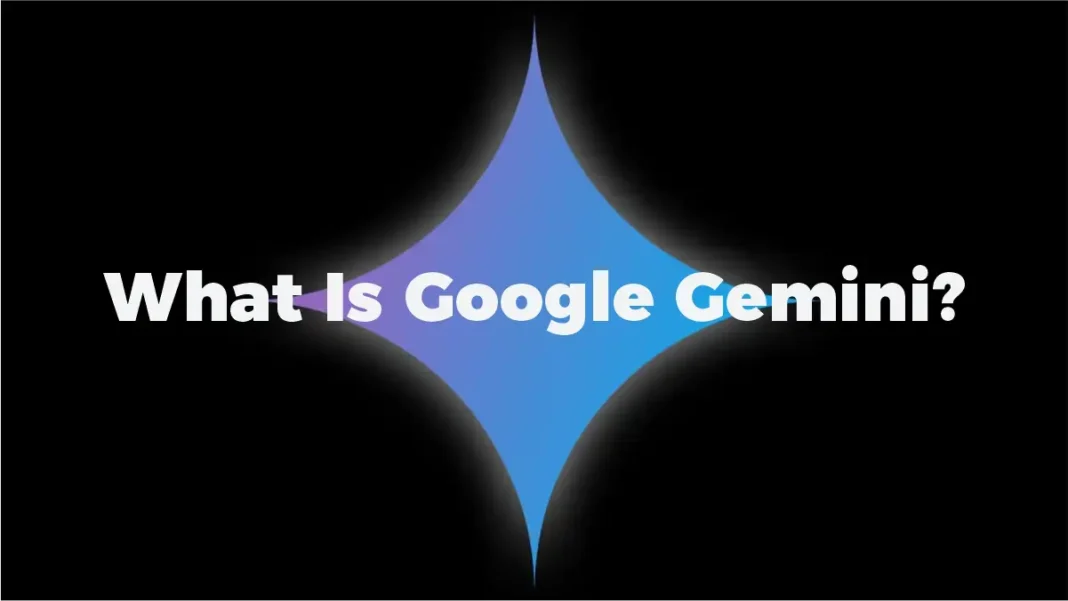The world of artificial intelligence is evolving at a breakneck pace, and at the heart of this revolution is a name you’ve likely heard: Google Gemini. More than just a simple chatbot, Google Gemini represents Google’s most ambitious and powerful family of multimodal AI models, designed to understand, operate on, and combine different types of information seamlessly – from text and code to images, audio, and video.
This comprehensive guide will demystify what is Google Gemini, breaking down its architecture, its various applications, and how it’s reshaping everything from search to mobile assistants. By the end, you’ll have a clear understanding of its capabilities, its different versions, and how it stacks up against other key players in the generative AI landscape.
The Foundation of Gemini: A New Era of Multimodality
Unlike previous large language models (LLMs) that were trained to handle one type of data at a time, Gemini was built from the ground up to be natively multimodal. This means its core architecture can process and generate content across text, images, audio, and video within a single framework. This is a crucial distinction that gives google ai a significant advantage, as it allows for more dynamic and context-aware interactions.
The development of the Gemini LLM family was a collaborative effort between Google DeepMind and Google AI, with its initial public release in December 2023. This release marked a clear strategic shift for Google, consolidating its AI efforts under a single, unified brand and model family. Since then, Google has rapidly rolled out new versions and capabilities, including Gemini 1.5, which brought a massive 1 million token context window, enabling it to process and reason over vast amounts of information – the equivalent of over 1,500 pages of text. (Source: Google DeepMind Blog, 2024).
Demystifying the Gemini Family of Models
The power of Gemini isn’t in a single model but in a family of models, each optimized for different tasks and scales. This tiered approach ensures that a version of Gemini can run on everything from powerful data centers to a smartphone.
- Gemini Ultra 1.0/1.5: Positioned as Google’s most powerful and capable model, Ultra is designed for highly complex tasks. It excels at reasoning, coding, and handling intricate, nuanced problems. It’s the engine behind the premium-tier Gemini Advanced experience, available through the Google One AI Premium plan. Its ability to process and understand long-form content, such as entire books or long research papers, makes it a game-changer for academic and professional research.
- Gemini Pro 1.0/1.5: This model is the workhorse of the Gemini family, balancing capability and efficiency. It powers the free version of the Gemini chatbot and is integrated into a wide range of Google products and services, including Google Search and the Gemini for Google Cloud platform. It’s versatile enough for a broad spectrum of tasks, from drafting emails to generating creative content.
- Gemini Flash 1.5: Introduced to be the fastest and most cost-effective of the Gemini models, Flash is optimized for high-volume, low-latency tasks. It’s ideal for developers building applications that require quick, real-time responses, such as chatbots or content summarization tools. Its speed and efficiency make it a critical part of the google generative ai key strategy for widespread adoption.
- Gemini Nano 1.0: The smallest and most efficient model in the family, Nano is designed to run directly on a device, like a smartphone. This “on-device” capability allows it to perform tasks locally without needing an internet connection. On the Pixel 8 Pro, for example, Gemini Nano powers features like summarizing conversations in the Recorder app and suggesting smart replies in Gboard. This is a significant step toward making AI an integral part of our daily, on-the-go lives.
Gemini in the Wild: Apps, Integrations, and the Future of Search
One of Gemini’s greatest strengths is its deep integration within the Google ecosystem. This isn’t a standalone tool; it’s a foundational technology woven into the fabric of Google’s most-used products.
The Gemini App: Your New Mobile Assistant
For users, the most direct interaction with the new AI is through the gemini app ios and Android platforms. On Android, the Gemini app can replace Google Assistant as the primary voice assistant, offering a more conversational and capable experience. Instead of just setting timers or playing music, you can now use natural language to ask Gemini to summarize a recent email, find a specific photo from your Google Photos library, or plan a trip using Google Maps and Flights.
While the Gemini app on iOS is more limited due to Apple’s ecosystem, it still provides a powerful, standalone chatbot experience, allowing iPhone users to leverage Gemini’s capabilities for writing, brainstorming, and complex problem-solving. This cross-platform availability is key to its widespread adoption.
Integration with the Google Ecosystem
Gemini’s power truly shines when it connects to other Google apps. The ability to pull information from Gmail, Google Drive, Docs, and Calendar allows Gemini to act as a hyper-personalized productivity tool. You can ask it to:
- “Find the flight details for my trip to Paris from my Gmail.”
- “Draft a follow-up email to a client based on the notes in my recent Google Doc.”
- “Create a weekly agenda based on my upcoming meetings in Google Calendar.”
This seamless interaction, which Google calls “extensions,” transforms Gemini from a simple information provider into a genuine digital assistant capable of complex, multi-step tasks.
The Future of Search
The integration of Gemini into Google Search is fundamentally changing how we find information. Instead of just providing a list of links, the new AI-powered Search Generative Experience (SGE) provides a comprehensive, AI-generated overview at the top of the search results page. This summary is designed to give you an immediate answer to complex queries, while still providing links to the source websites for further exploration. This is a clear step towards a more conversational and analytical search experience, moving beyond simple keyword-matching to true semantic understanding.
Gemini vs. the Competition: A Head-to-Head Analysis
The release of Gemini immediately put it in direct competition with OpenAI’s ChatGPT, the dominant force in the generative AI space. While both are powerful AI models, they have distinct philosophies and capabilities.
Multimodality: As mentioned, Gemini was built for multimodality from the beginning, allowing it to process and understand different data types simultaneously. In contrast, while ChatGPT (with GPT-4 and its successors) is multimodal, it often relies on separate, specialized components to handle non-textual inputs, which can sometimes lead to a less integrated experience.
Integration: Gemini’s deep integration with Google’s extensive product suite gives it a significant advantage. The ability to directly access and work with your personal data (with explicit permission) within Gmail, Docs, and other services provides a level of utility that is currently unmatched. ChatGPT, while powerful, requires more manual inputs or third-party plugins to achieve similar functionality.
Performance and Benchmarks: On various industry benchmarks, Gemini has demonstrated state-of-the-art performance, especially in areas of reasoning and multimodal understanding. While specific benchmarks can be debated, multiple independent analyses from institutions like the Swiss Federal Institute of Technology have shown Gemini to be highly competitive, often outperforming other models in specific tests that require complex problem-solving and multimodal reasoning (Source: ETH Zurich AI Research Paper, 2024).
Availability and Pricing: Both models offer a free tier, but their premium plans differ. The free google generative ai key API access and the free consumer-facing Gemini app are powered by the efficient Gemini Pro and Flash models. The premium features, which leverage the more powerful Ultra model, are available through the Google One AI Premium plan. ChatGPT offers its most advanced models via a “Plus” subscription. The choice between them often comes down to which ecosystem a user is more invested in and which specific features they prioritize.
People Also Asked: Your Top Questions Answered
Is Google Gemini available on iOS?
A: Yes, the Google Gemini app is available on iOS. While it doesn’t replace the native Siri assistant, it functions as a powerful, standalone AI chatbot that you can use for various tasks like writing, brainstorming, and information retrieval.
What is the difference between Google Bard and Google Gemini?
A: Bard was the name of the conversational AI chatbot service. In February 2024, Google rebranded Bard to Gemini to reflect that the service is now powered by the Gemini family of LLMs. Essentially, the name changed to match the underlying technology, making it a unified brand.
Is the Gemini app free?
A: The core Gemini app is free to use, and it is powered by the capable Gemini Pro model. For access to the more powerful Gemini Ultra model and additional features, you need to subscribe to the Google One AI Premium plan.
What is the Gemini LLM?
A: The Gemini LLM (Large Language Model) is the foundational family of AI models developed by Google. The term “LLM” refers to the core technology that processes and generates text, code, and other data. The Gemini family includes a range of models, such as Ultra, Pro, Flash, and Nano, each optimized for different tasks and computing environments.
How can I get a Google Generative AI Key?
A: Developers can obtain a google generative ai key for the Gemini API through Google AI Studio or Google Cloud’s Vertex AI platform. This key allows them to integrate Gemini’s capabilities into their own applications and services, tapping into its powerful features for a wide range of use cases.
Conclusion: The New Frontier of AI
What is Google Gemini? It’s not just a product; it’s a strategic move by Google to consolidate its AI expertise and create a single, unified, and natively multimodal platform. With its tiered family of models, deep integration with the Google ecosystem, and a clear focus on real-world utility, Gemini is poised to be a dominant force in the future of artificial intelligence.
As AI models continue to evolve, the distinction between them will become less about raw performance and more about their seamless integration into our daily lives and workflows. According to a recent analysis by Gartner, “The most impactful AI systems of the next five years will be those that not only understand user intent but also natively integrate into existing productivity suites, transforming how we work and interact with information.” (Source: Gartner Market Analysis, 2025). Google Gemini, with its deep connections to Gmail, Docs, and Search, is a prime example of this vision in action, offering a glimpse into a future where AI is not just a tool but a true collaborative partner.


